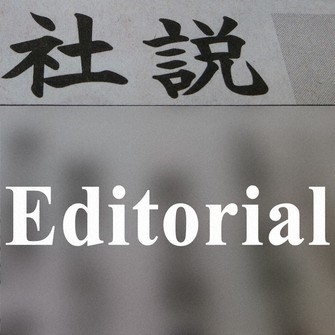Tokyo Olympics should be held without spectators – The Mainichi Shimbun Editorial

The Japanese government has decided to lift a COVID-19 state of emergency in Tokyo and eight other prefectures on June 20, with seven of the prefectures including the capital set to transition to quasi-emergency measures.
But the state of coronavirus infections in Japan remains serious, with Tokyo's daily infection numbers topping the levels when the government lifted its declaration in March around the end of the third wave of infections.
Infections could spread if the Tokyo Olympic and Paralympic Games go ahead, and risks will increase further if the flow of people increases as a result of allowing spectators to the games.
If the games are to be held amid the outbreak, then there should be no spectators.
Both Prime Minister Yoshihide Suga, who backs the games, and the Tokyo Organising Committee of the Olympic and Paralympic Games have repeatedly stated that the event will be made "safe and secure." We have called on them to show the basis for their statements, but clear grounds have yet to be provided, and their efforts have been insufficient.
The greatest concern is the possibility of infections resurging with Tokyo as the epicenter. The variant first confirmed in the U.K. has now become Japan's main variant, while an increasing number of infections is seen with the variant first detected in India which is reportedly highly transmissible. That more people have been going to downtown areas is further cause for concern.
An expert government subcommittee has said that full-scale measures to prevent infections resurging are a condition to approving lifting the state of emergency in Tokyo. Vaccinations for elderly people at high risk of developing severe COVID-19 symptoms are progressing, but Japan can by no means rest easy.
Younger people tend to have a wider range of activities and are yet to be vaccinated, making it difficult to contain infections. It has been pointed out, too, that people aged 40 to 64 can easily develop serious symptoms if infected with the British variant. This is also concerning.
In spite of this, the organizing committee is said to be considering allowing up to 10,000 people at Olympic venues.
What is problematic is the flow of people, including among those outside venues. The organizing committee estimates that, based on ticket sale data, the effect on overall congestion is likely to be small even if spectators are allowed at the games as there are fewer students commuting to school over the summer vacation. But we have to say this is overly optimistic.
Capped spectator numbers have been allowed at pro baseball and J-League soccer matches. Based on this, the government and the organizing committee are trying to formulate a policy allowing spectators at the games, too.
But the Olympics is a large-scale event with many sports' competitions concentrated in a short period. If spectators gather from across Japan, then the flow of people will certainly increase as they move about, stay in accommodation, and dine out.
Preliminary calculations by Japan's National Institute of Infectious Diseases suggest that even if the virus variant first detected in India has a minimal effect, it is possible a resurgence of infections will be seen during the games -- between the latter half of July and the first half of August -- which could require another state of emergency declaration.
In addition to vaccinations of athletes and others involved in the games and their repeated virus tests, infection prevention measures such as the restriction of movement in isolated environments will be implemented. But measures for spectators have yet to be determined.
If the games are held without spectators, the flow of people can be controlled and it will also lighten the load on medical workers responding to heatstroke and other ailments arising from people watching the games. It will also be possible to cut numbers of security staff and volunteers keeping an eye on spectators.
Even if ticket revenue is lost, there is great merit in having no spectators, including making management of the games easier.
Experts such as those on the government subcommittee on the coronavirus, including chairman Shigeru Omi, have pointed out that a games without spectators presents the least risk. They are preparing to present the government and organizing committee with the view that even if spectators are allowed, their numbers should be reduced below government standards for major events.
Some claim that a games without spectators would lack connection to society. But even if a sense of unity at the venues is lost, we do not think the significance of the Olympics and Paralympics will be tarnished.
While the coronavirus pandemic has created a difficult environment, athletes who have devoted themselves to their training will gather from various countries and compete. People should still be able to support them on TV and online, and share their sense of values.
Over the past year, new methods for watching sporting events that use virtual images and other technology have been developed. This could be an opportunity to use them.
There was a time when the coronavirus blocked even qualifying events. But now, all berths for the games are set to be finalized by the end of this month.
In providing a platform for athletes to compete, effort needs to be made to minimize the risk of infections spreading. If organizers do not respect expert opinions and put them to use in countermeasures, then they cannot hold the games while keeping the public safe.
June 18, 2021 (Mainichi Japan)



